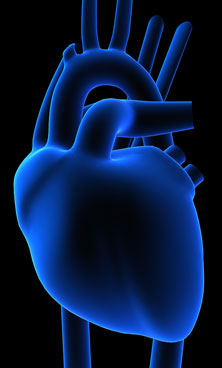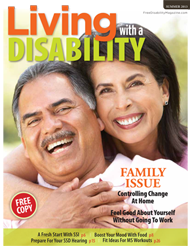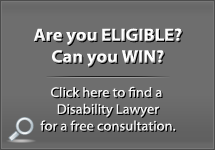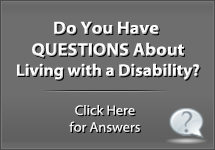
Congestive heart failure (CHF) is a condition in which the heart can no longer pump enough blood to supply the body. Fluids back up in tissues and major organs as a result.
CHF is a chronic, long-term condition that usually develops slowly. Individuals may, however, experience a sudden onset of symptoms.
The symptoms of congestive heart failure vary according to the organs involved and how much the body compensates for the weakness of the heart. People who have CHF may experience some, all, or none of the following symptoms.
Signs and Symptoms of CHF
- Shortness of breath (also called dypsnea) may occur during activity, while resting, during sleep, or when lying flat. Some patients may only be able to sleep sitting up. Patients may wake up feeling tired, anxious, restless, or even gasping for air.
- Exercise intolerance means the person cannot handle even mild physical activity that she or he could do in the past.
- Coughing or wheezing from fluid buildup in the lungs may produce mucus that is white or tinged with pink.
- Buildup of excess fluids (also called edema) can cause weight gain and/or swelling in the feet, ankles, legs, or abdomen. Swelling may be most noticeable in the ankles or in the front of the lower legs.
- Fatigue, dizziness, and weakness may cause difficulty doing everyday activities.
- Abdominal pain or nausea may bring a feeling of being full or of being sick to your stomach, causing lack of appetite.
- Confusion, memory loss, difficulty concentrating, and disorientation may first be noticed by family members or caregivers.
- Increased or irregular heart rate can cause heart palpitations and a feeling that the heart is racing or throbbing. This occurs as the heart beats faster in order to pump enough blood throughout the body.
- Increased urination, especially at night, may result from extra fluid in the body.
When to See the Doctor
As mentioned earlier, people may have congestive heart failure and have some, all, or none of the common symptoms. Plus, many of the symptoms can indicate other diseases or conditions. Medical providers recommend that people seek medical help if they:
- Have shortness of breath that worsens, occurs with mild exercise, or causes difficulty sleeping;
- Wake up during the night with shortness of breath;
- Sleep better in a semi-upright position (for example, in a chair or recliner) than flat in bed;
- Have unusual fatigue that rest does not relieve;
- Have a dry cough that continues; or
- Have unusual swelling in their ankles, legs, or feet.
If these symptoms develop suddenly, people should seek immediate emergency care. If you can no longer work due to CHF you should really consider filing for Social Security Disability benefits. Not everyone with a heart condition can win benefits, but if your medical impairment is severe enough to keep you from working you may be entitled to get monthly disability payments.
Previous post: PTSD can be a Severe and Disabling Impairment
Next post: Spinal Stenosis Can Be a Disabling Medical Condition










